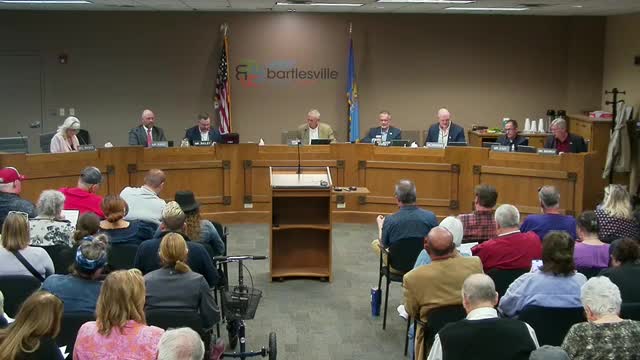Article not found
This article is no longer available. But don't worry—we've gathered other articles that discuss the same topic.
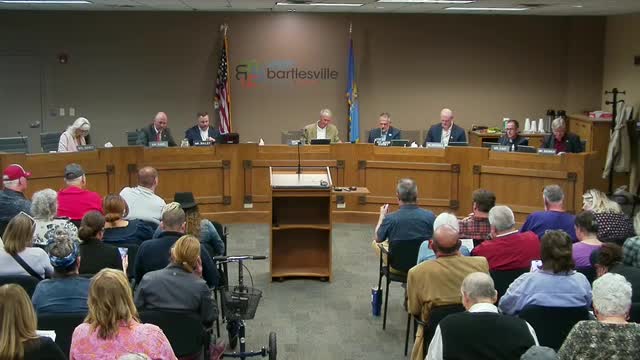
Votes at a glance: Bartlesville council actions April 7, 2025
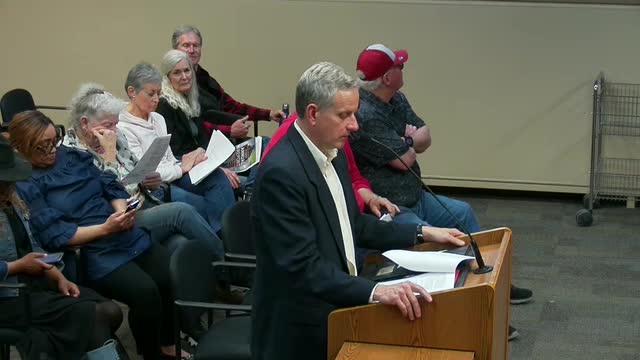
Bartlesville council opposes proposed state ban on land application of biosolids, cites costs and limited science
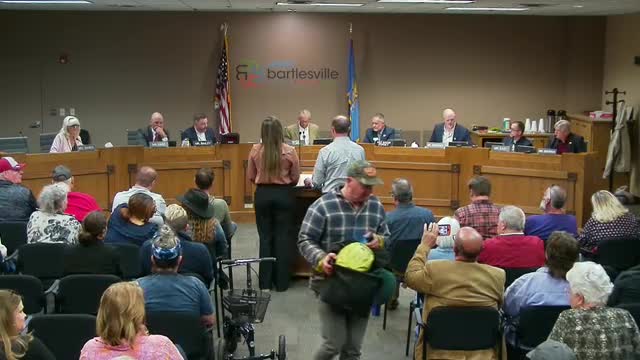
Unsheltered task force presents draft ordinances, urges housing and service strategies
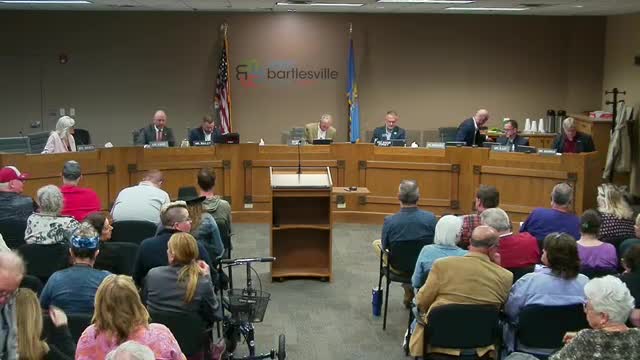
Bartlesville council adopts ordinance regulating ALPR 'Flock' cameras with audit and data‑sharing limits
